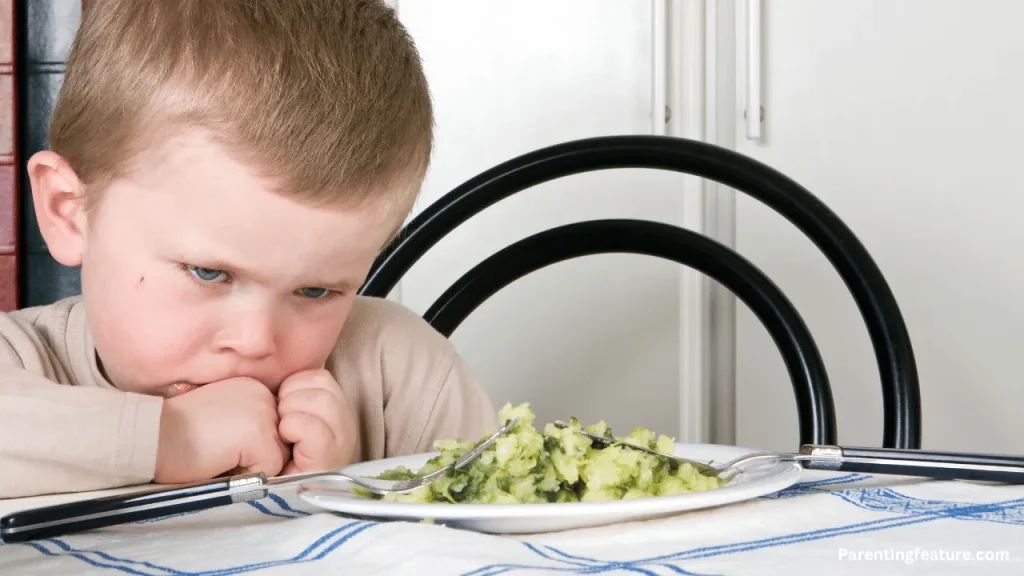Parenting is an adventure filled with joys and challenges, especially when navigating the vibrant personality of a strong-willed child.
Strong-willed children possess unique characteristics that, while often testing the limits of parental patience, also hint at their potential for leadership, independence, and resilience.
Understanding and embracing these traits can transform parenting strategies from power struggles to pathways for fostering mutual respect, empathy, and connection.
This blog post delves into the heart of gentle parenting—a compassionate, respectful approach tailored to nurturing the spirit of strong-willed children and ensuring their flourishing.
What is Strong-Willed? Challenges and Benefits For Parents
The term “strong-willed” is not a label but a recognition of a child’s inherent determination, independent thinking, and potential for leadership.
These children are not defiant by default but are naturally equipped with an intense desire to explore the world on their terms.
However, this intense determination often leads to challenges such as power struggles, tantrums, and defiance, leaving parents feeling exhausted and overwhelmed.
Challenges for Parents
Parenting a strong-willed child often feels like navigating a ship through a storm. Everyday struggles include, but are not limited to, daily power struggles, frequent and intense tantrums, and general defiance of authority.
These challenges, however, are not insurmountable barriers but opportunities for growth and understanding.
Benefits of Gentle Parenting
Gentle parenting is an approach that emphasizes empathy, respect, and understanding over control and discipline.
It’s particularly beneficial for strong-willed children as it fosters self-regulation, boosts confidence, and strengthens the parent-child bond—crucial elements for children who thrive on connection and understanding.
Also read: Gentle Parenting Troubles?

Understanding Your Strong-Willed Child
Viewing your child’s traits through a positive lens is transformative. Stubbornness becomes persistence, defiance becomes independence, and intensity is seen as passion. This shift in perspective opens up new avenues for appreciation and cooperation.
Temperament and Sensitivity
Temperament plays a significant role in a child’s behavior. Strong-willed children often have a heightened sensitivity to their environments, making them more prone to intense reactions. Understanding this aspect can help parents tailor their approach to meet their child’s needs.
Developmental Perspective
A child’s developmental journey is marked by a quest for independence, which can clash with a parent’s instinct to guide and protect. Acknowledging this dynamic is crucial in fostering a healthy relationship where the child feels empowered and the parent remains a respectful guide.
Also read: Is Gentle Parenting Breeding Entitlement in Kids?
Building Connection – The Heart of Gentle Parenting
Validating your child’s feelings communicates understanding and respect even amid a tantrum. Statements like “I see you’re upset” are powerful tools for connection.
The Importance of Listening
Active listening and reflective language demonstrate to your child that their voice matters. This approach builds trust and encourages open communication.
Quality Time
Dedicated one-on-one time, engaging in play, and showing genuine interest in your child’s interests are fundamental to strengthening the parent-child bond. This time together is invaluable in building trust and mutual respect.
Strategies for Fostering Cooperation
Providing age-appropriate choices gives strong-willed children a sense of control and autonomy, reducing power struggles. This approach respects their need for independence while guiding them towards desirable outcomes.
Routines and Predictability
Consistent routines offer security and stability, which are essential for children who may feel overwhelmed by their strong emotions. A predictable environment helps them feel more in control and less anxious.
Natural Consequences
Allowing natural consequences to unfold teaches responsibility and accountability. This method respects the child’s ability to learn from their experiences without harsh punishment.
When-Then Routines
“When-then” routines are a positive way to encourage cooperation. For instance, “When you’ve finished your homework, you can have screen time.” This technique motivates children with a clear structure and positive outcomes.
Positive Reinforcement
Praise and encouragement for positive behaviors reinforce a child’s sense of accomplishment and worth. This positive feedback loop supports their development of self-esteem and confidence.
When Tantrums Arise
Modeling calmness and self-regulation in the face of a tantrum teaches your child valuable coping skills. Deep breaths and a calm demeanor are your tools for de-escalation.
Safe Space
Creating a calming space where your child can retreat and regroup during overwhelming moments is essential. This haven supports their emotional regulation constructively.
Redirection
Once the emotional storm has passed, gently guiding the conversation toward solutions and understanding can help constructively address the root cause of the tantrum.
Setting Boundaries with Love and Leadership
Collaboratively establishing house rules provides a clear framework of expectations, giving your child a structured environment to thrive.
Logical Consequences, Not Punishment
Focusing on logical consequences rather than arbitrary punishments reinforces the connection between actions and outcomes, fostering a sense of responsibility.
Firmness with Kindness
Maintaining boundaries with compassion and respect ensures that discipline is perceived as guidance, not punishment, reinforcing the bond between parent and child.
The Parent’s Role
Gentle parenting is as much about the parent’s well-being as the child’s. Taking care of your emotional and physical health is crucial for maintaining the patience and empathy required.
It’s a Journey
Parenting is a marathon, not a sprint. Accepting that there will be setbacks and learning from them is part of the process. Cultivate a forgiving and understanding attitude towards yourself and your child.
Support Systems
Seeking support from other parents, therapists, or parenting resources can provide valuable insights and strategies for navigating the challenges of parenting a strong-willed child.
Conclusion
Gentle parenting offers a path towards a less stressful, more fulfilling relationship with your strong-willed child. This approach fosters an environment of mutual respect, understanding, and connection, laying the foundation for your child’s development into a confident, resilient individual.
Patience, persistence, and empathy are essential. Remember, the parenting journey is enriched with moments of challenge and triumph, and each step forward strengthens the bond between you and your child. Embrace the journey with an open heart and mind, and the rewards will be immeasurable.
FAQs
1. What is a strong-willed child?
A strong-willed child is characterized by inherent determination, independence, and potential leadership. This doesn’t mean they are inherently defiant or problematic, but they possess resilience, persistence, and a keen desire to explore the world on their own terms.
2. Why does gentle parenting work well with strong-willed children?
Gentle parenting works well with strong-willed children because it respects their need for autonomy while guiding them with empathy and understanding. This approach builds self-regulation, boosts confidence, and strengthens the parent-child bond, which is especially important for children who value connection and respect.
3. How can I reframe my perspective on my child’s strong-willed traits?
Reframing involves seeing your child’s strong-willed traits as positive qualities. For example, I view stubbornness as persistence, defiance as a sign of independence, and intensity as passion. This positive perspective opens up new avenues for appreciation and cooperation.
4. What role does empathy play in gentle parenting?
Empathy is central to gentle parenting. It involves validating your child’s feelings and experiences, even during challenging moments. This validation builds trust, shows respect for their emotions, and helps them feel understood, which is crucial for strong-willed children.
5. Can offering choices help in reducing power struggles?
Yes, offering age-appropriate choices gives strong-willed children a sense of control and autonomy, reducing power struggles. This respects their need for independence while guiding them towards making positive decisions.
6. How should I react during my child’s tantrums?
During tantrums, it’s essential to stay calm and model self-regulation. Creating a designated calming space for your child to regroup and using redirection after they’ve calmed down can help address the issue constructively. Your calm demeanor teaches them coping skills.








